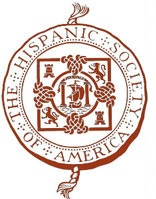 Washington
WashingtonCourt Weighs Right to Guns, and Its Limits

Stephen Crowley/The New York Times
Advocates of an individual right to bear arms demonstrated Tuesday outside the Supreme Court as the justices heard arguments.
By LINDA GREENHOUSE
Published: March 19, 2008
WASHINGTON — A majority of the Supreme Court appeared ready on Tuesday to embrace, for the first time in the country’s history, an interpretation of the Second Amendment that protects the right to own a gun for personal use.
That may be the easy part.
The harder question in the case challenging the District of Columbia’s handgun ban is what kind of restrictions the government could constitutionally place, in the name of public safety, on the newly recognized right. The answer to that question, on which the outcome of the case will turn, was less clear.
The argument was lively and intense, running 22 minutes over its allotted hour and 15 minutes. Despite “starting afresh,” as Chief Justice John G. Roberts Jr. put it, on a subject the court had not addressed since 1939, the justices appeared at least as well informed as the lawyers on minute details of English and American legal history. The relevance of that history, on which both sides have their distinguished experts, remains to be seen.
There was also a good deal of linguistic dissection of the Second Amendment’s text: “A well regulated Militia, being necessary to the security of a free State, the right of the people to keep and bear Arms, shall not be infringed.”
“The amendment’s first clause confirms that the right is militia-related,” Walter Dellinger, arguing for the District of Columbia, told the court near the beginning of his argument.
The District is appealing a ruling by the federal appeals court here last year that adopted the individual-rights view of the Second Amendment and declared the handgun ban unconstitutional.
Mr. Dellinger asserted that at the time the Second Amendment was drafted, “the people” and “the militia” were essentially synonymous; therefore, he said, the amendment, its two clauses properly interpreted, gave people the right to own weapons only in connection with their militia service.
That assertion promptly ran into objections.
Doesn’t the argument that the people and the militia were one and the same “cut against you,” Chief Justice Roberts asked. If the militia included everyone, he continued, “doesn’t the preamble that you rely on not really restrict the right much at all?”
Tacking slightly, Mr. Dellinger, a former acting solicitor general, replied that the focus should be on “the scope and nature of the right that the people have.”
“It is a right to participate in the common defense,” he added.
Justice Anthony M. Kennedy, whose vote may well be crucial to the outcome of the case, District of Columbia v. Heller, No. 07-290, disagreed. The purpose of the first clause, with its militia reference, was simply to “reaffirm the right to have a militia,” he said, while the second made clear that individuals had the right to own guns.
In his questions throughout the argument, Justice Kennedy insisted that the amendment’s framers wanted to assure the ability of “the remote settler to defend himself and his family against hostile Indian tribes and outlaws, wolves and bears and grizzlies and things like that,” as he phrased his concern with self-defense at one point.
And Justice Antonin Scalia told Mr. Dellinger that “the two clauses go together beautifully” if the Second Amendment was understood as an effort to guarantee that militias would not be “destroyed by tyrants.” The proper reading, Justice Scalia said, is, “Since we need a militia, the right of the people to keep and bear arms shall not be infringed.”
There was broad agreement during the argument that even if an individual right was recognized, some kinds of limitations on gun ownership would still be in order. But there was no clear consensus on whether those restrictions could sweep as broadly as the District’s law, or even how the law should be interpreted when it came to a right of self-defense.
Alan Gura, representing Dick Anthony Heller, a security guard who challenged the statute after his request for a license to keep his gun at home was turned down, said that bans on the shipment of machine guns and sawed-off shotguns would be acceptable. Perhaps guns could be banned from schools, Mr. Gura said in answer to questions.
“The legislature has a great deal of leeway in regulating firearms,” Mr. Gura said. “There is no dispute about that.” But he said the District’s ban on “functional firearms” in the home was “extreme” and should fail by any measure of constitutional scrutiny. “A fundamental right is at stake,” he said.
The lawyer in the middle, both literally and figuratively, was Solicitor General Paul D. Clement, whose time slot for argument fell between those of the two principal advocates. In accordance with the brief he filed for the government, Mr. Clement supported the individual-rights view and took no position on the statute’s constitutionality. But he criticized the lower court as having approached the issue too categorically. And he cautioned the court against writing an opinion so broad as to jeopardize federal gun regulations.
“The Second Amendment talks about the right to bear arms, not just a right to bear arms,” Mr. Clement said. “And that pre-existing right always coexisted with reasonable regulations of firearms.”
As in his brief, which angered some members of the Bush administration for not supporting the appeals court’s approach, Mr. Clement said the government was particularly concerned that federal restrictions on machine guns not be undermined.
Under the lower court’s analysis, he noted, categories of weapons that would have been considered “arms” by the Second Amendment’s drafters could not be banned today. He added that it would be hard to argue that machine guns did not fall into such a category, “given that they are the standard issue weapon for today’s armed forces and the state-organized militia.”
Consequently, he said, the justices should use a standard more relaxed than the “strict scrutiny” that the lower court applied in evaluating restrictions on gun ownership. Selecting a standard to accommodate sufficient regulation is important, he said, adding, “In our view, it makes a world of difference.”
Chief Justice Roberts expressed considerable impatience with this line of argument. “I wonder why in this case we have to articulate an all-encompassing standard,” the chief justice said. “I don’t know why, when we are starting afresh, we would try to articulate a whole standard that would apply in every case.”
Justice Scalia tried to deflect Mr. Clement’s argument by noting that machine guns were not used by militias at the time the Second Amendment was drafted. “I don’t see why you have a problem,” Justice Scalia told the solicitor general.
Mr. Clement, who was once Justice Scalia’s law clerk, offered a rejoinder that dared to suggest that the justice was being inconsistent with one of his own opinions. In 2001, Justice Scalia wrote a majority opinion holding that the police needed a warrant before training a heat-detecting device — which did not exist when the framers drafted the Fourth Amendment’s warrant requirement — on a private home.
“It does seem to me that just as this court would apply the Fourth Amendment to something like heat imagery,” Mr. Clement said, “I don’t see why this court wouldn’t allow the Second Amendment to have the same kind of scope.” He added, “And then I do think that, reasonably, machine guns come within the term ‘arms.’ ”
Justice Stephen G. Breyer, late in the argument, made an effort to save the statute by a similar historical analogy. Firearms were regulated in the country’s early years for the sake of safety, he noted, describing a Massachusetts law that prohibited keeping loaded weapons in the home because of the risk of fire.
“So today, roughly, you can say no handguns in the city because of the risk of crime,” Justice Breyer said. “Things change.”
Justice Kennedy, the member of the court at whom Justice Breyer was most likely aiming his overture, did not take up the invitation.
Skip to next paragraph
Related
Transcript of Arguments: District of Columbia v. Heller (pdf)
Audio of Arguments (C-Span)
Case Docket (D.C. v. Heller)
Times Topics: Supreme Court
http://www.nytimes.com/2008/03/19/washington/19scotus.html
NB - It must be understood that the"right to have and bear arms" is an individual right long established in Europe and the Americas before the American Revolution.
It must also be understood that in the American Colonies (British, Spanish, French) every physically able male 16 to 60 was 1. expected to "have and bear arms" and 2. to be ready a moment's notice to report to the local Militia for the defense of the settlement, town, city and Colony.
This is an ancestral tradition long ingrained in the English and Celtic societies.
Families and Clans would gather to defend their homelands as well as to go hunting for sustenance. These traditons were brought to the Americas by the British, the Spaniards and the French, heirs to Celtic and Celtic Iberian traditions.
As Americans we have the right to "have and bear arms" including, but not exclusively firearms; it is one of the "Natural Rights" granted by the Almighty and not any King or President or Parliament or Congress.
THe US Supreme Court has no alternative but to sustain that individual right of every American.
What the gun control laws have done in places like Washington DC and New York is to keep firearms from the hands of decent, law abiding citizens and legal residents without enforcement of the laws to punish the criminal use of firearms.
Criminals will always find a way to obtain the weapons they need to commit their crimes.
The laws should be addressed to punish CRIMINALS not to prevent decent, law abiding citizens and legal residents from defending themselves, families and homes.
The armed citizens is the best guaranteed against despotic dictatorships, the first thing the Nazis and Communists did whe taking over was to collect all firearms, I recall Fidel Castro's speech in 1959 saying "Guns? Why do you need guns! The Revolution is your protection" then proceeded to execute thousands, put tens of thousands in prison and force over 2 million into exile, mostly to the USA. Every exile from every country under the Soviet Evil Empire can report the same story.
The armed citizenry is the only real protection of our individual Freedoms.
I hope the US Supreme Court will do the right thing and protect our Second Amendment individual rights "to have and bear arms". - JRM








+(3).jpg)



.jpg)
+(3).jpg)


No comments:
Post a Comment